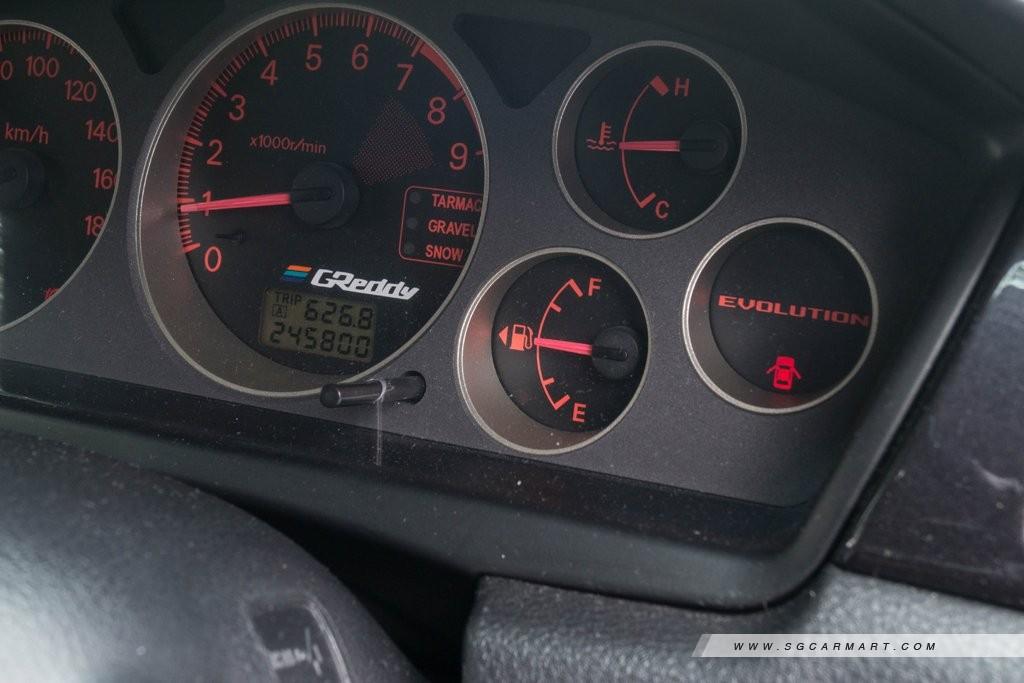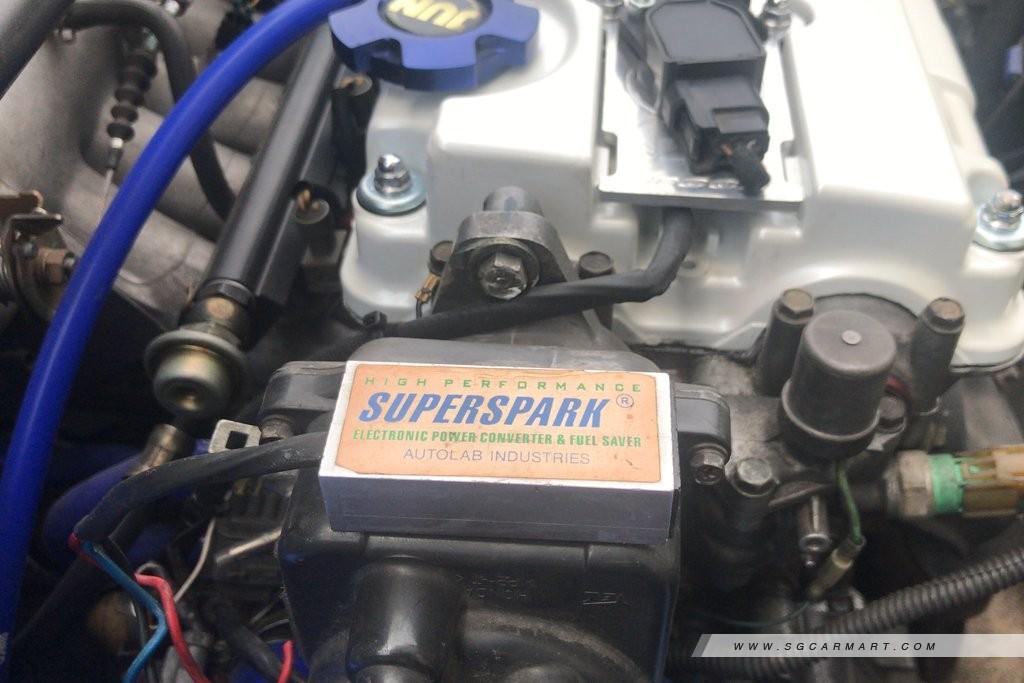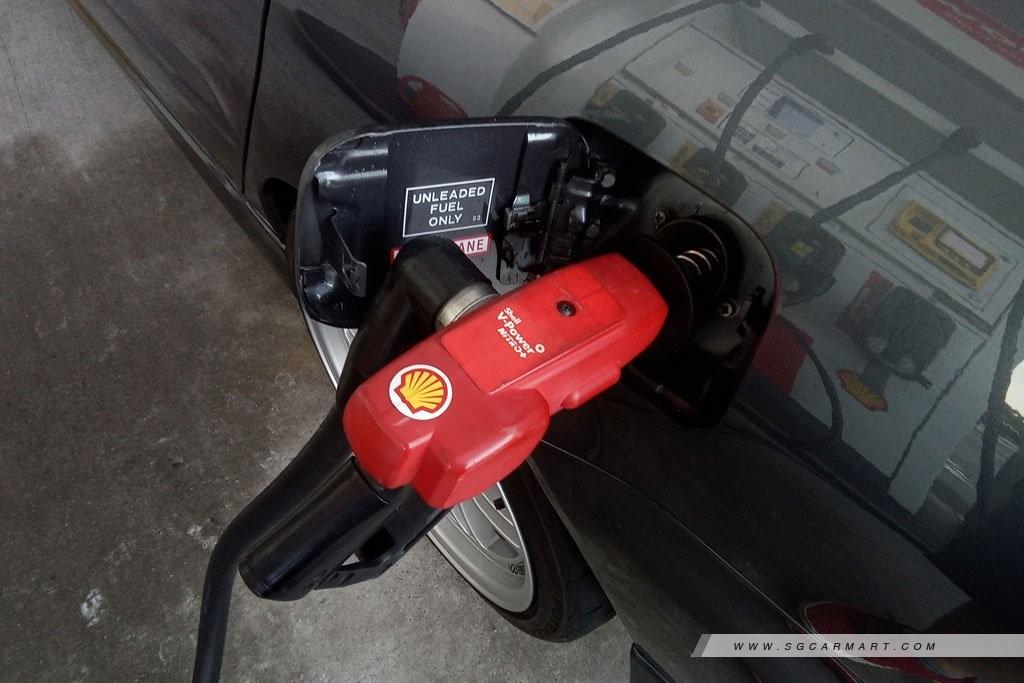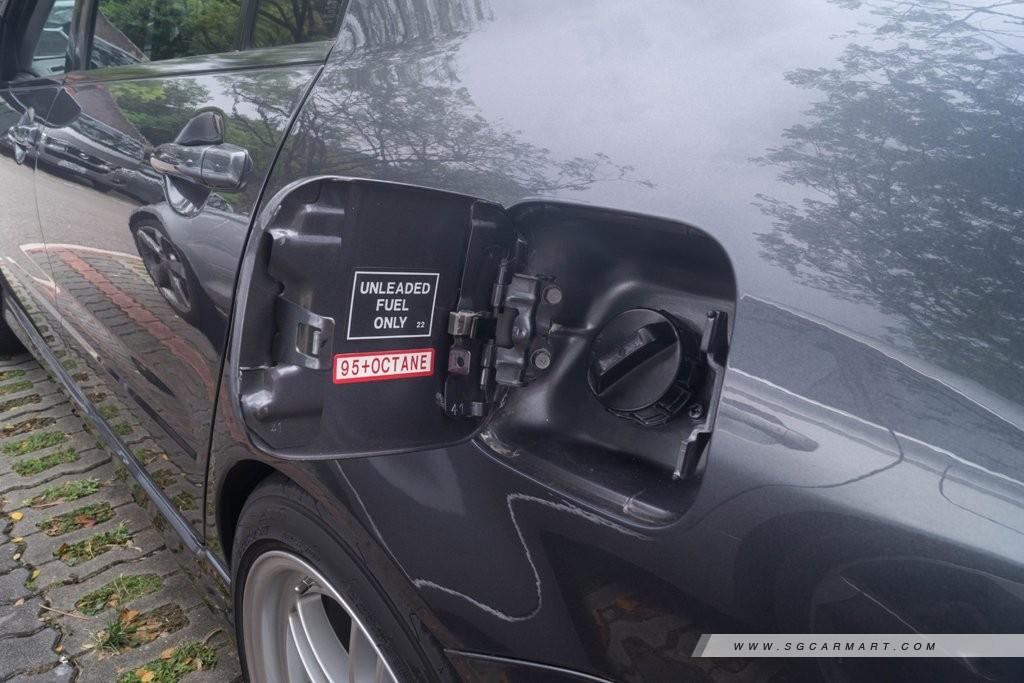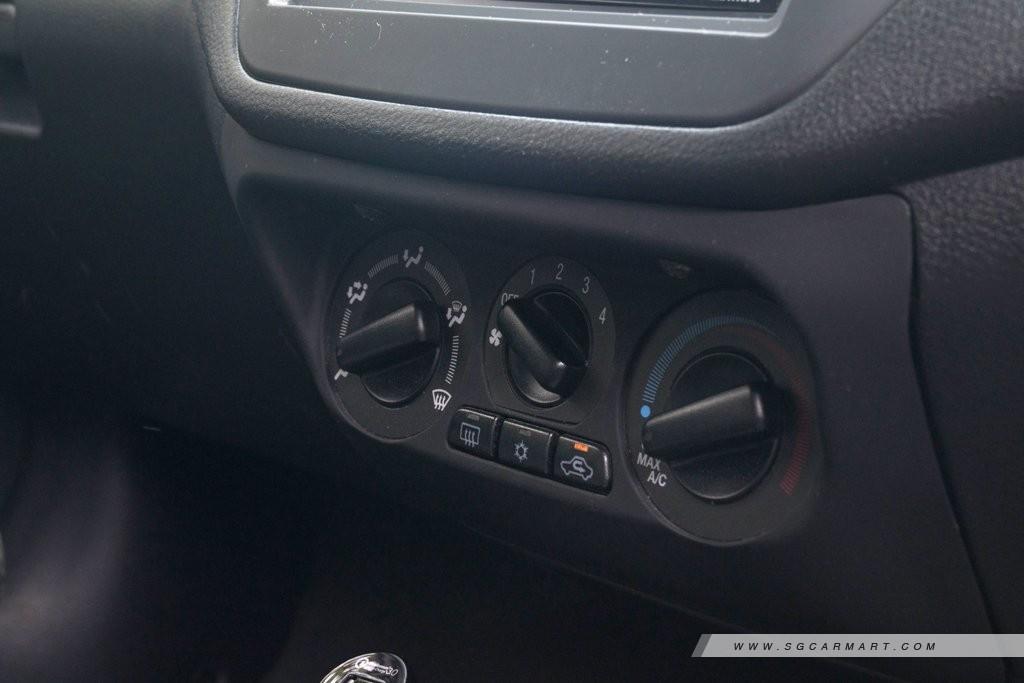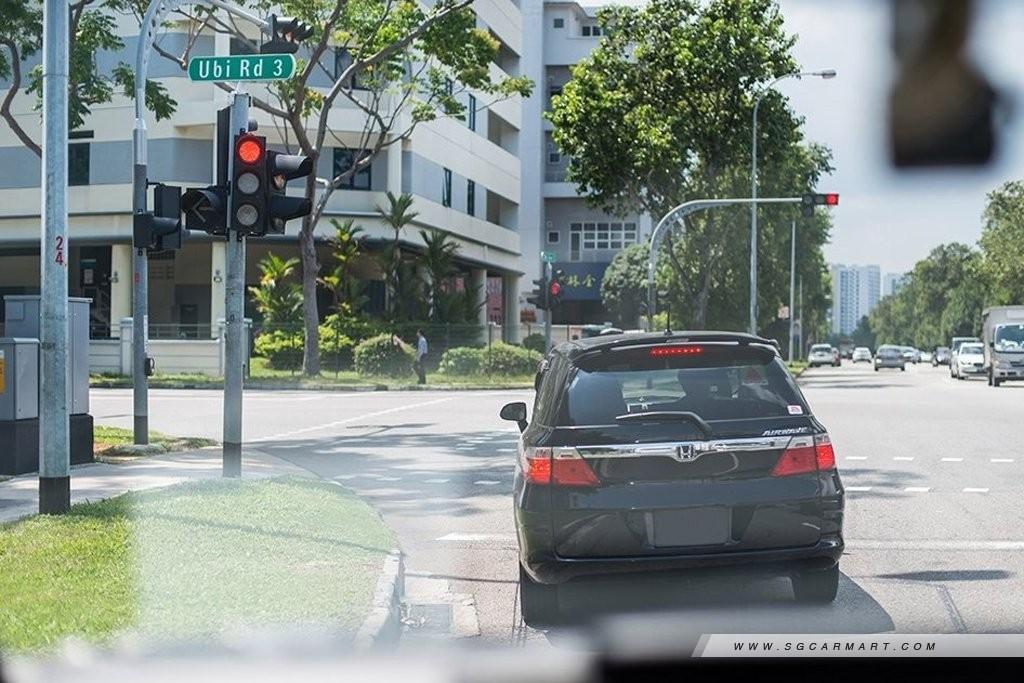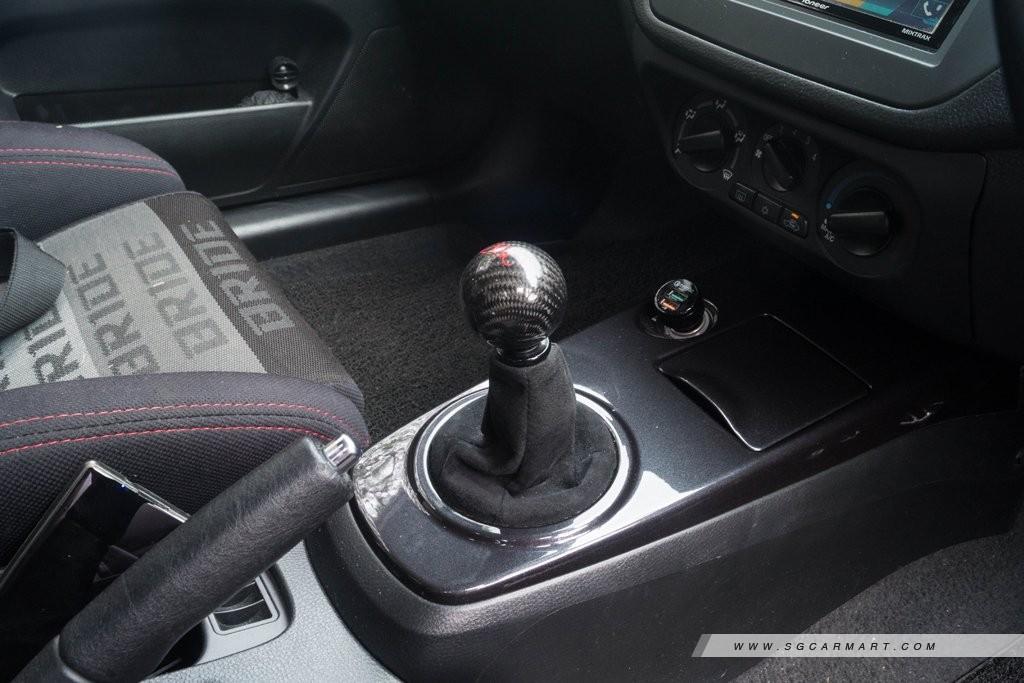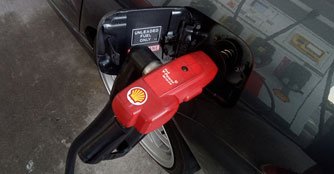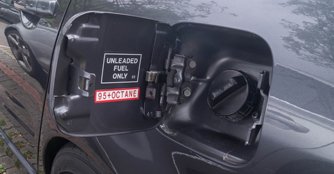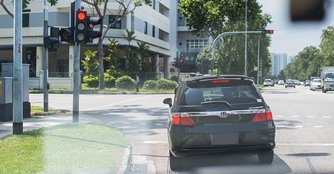Many drivers have heard of these fuel-saving tips but do they really work?
18 Sep 2018|42,435 views
Anyone who drives will love to improve their car's fuel consumption, in a bid to soften the blow on their wallets. As such, many will readily experiment with the various tips found either online or through word of mouth. These tips range from reasonable ones such as not using the air-conditioner, to absolutely bizarre ideas like popping a couple of mothballs into the fuel tank.
So, do any of these tips really work? Let's find out.
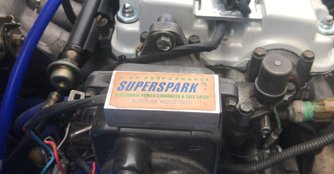
Fuel-saving gadgets come in many different shapes and sizes. While some claim to reduce your car's fuel consumption by 'conditioning' the electrical system in your car, others apparently do so by breaking up the fuel molecules with products that are attached to the fuel lines.
What they all share is that they often do not have any actual effect on fuel consumption.
You would think that if these technologies really work so well, most car manufacturers and petrol companies would have adopted them ages ago, considering how the race for better engine efficiency has been so heated in the current years.
Many different sources, including the United States Environment Protection Agency, have put a huge array of fuel saving gadgets to the test and concluded that they are never able to achieve their advertised fuel savings.
2) High-octane/Premium fuel improves fuel consumption
Fuels with higher octane rating are able to reduce the possibility of engine knock (an abnormal combustion, which can damage the engine) occurring, as they can withstand more compression before igniting.
Engines are able to produce more power by running an advanced ignition timing (the spark plug ignites the fuel earlier during the engine's cycle). With higher octane fuels, the ignition timing can be advanced further without inducing the aforementioned engine knock and thus results in increased engine performance.
While most performance cars are designed to take advantage of this to make more power and perform more efficiently, using a higher octane fuel in a regular car that doesn't require it, will neither improve its performance nor fuel efficiency.
3) Mothballs in gas tank
This is an age-old automotive myth. It was said that by adding mothballs into your car's fuel tank, it will increase the fuel's octane rating, resulting in better performance and fuel economy.
Mothballs are usually made of naphthalene, which like petrol, are hydrocarbons. This make the claims seem less outlandish. However, many have experimented with them and it was found that mothballs burn very dirtily, which can cause carbon deposits to build up in the engine, affecting performance.
While they might be able to raise the octane level of fuels in the past, if added to modern fuel, which already have high octane ratings (higher than the mothballs), there will not be any benefits.
Furthermore, even if they do increase the octane rating, not all engines are able to benefit from that.

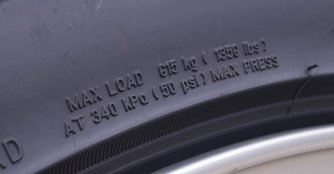
While under-inflated tyres are proven to worsen fuel economy, the reverse is not true.
Theoretically, over-inflating tyres will result in a bulge in the centre of the tread, which should reduce the rolling resistance and hence improve fuel economy. However, actual tests have shown that over-inflated tyres result in little to no improvements on the amount of fuel the car consumes.
While the benefits of over-inflating tyres are debatable, there are many definite drawbacks of doing so. An over-inflated tyre will experience uneven tyre wear, will be much stiffer and will have a smaller contact patch, which not only make the ride harsh and uncomfortable, but also affect the car's handling detrimentally.
Furthermore, it will be dangerous if you are to exceed the maximum tyre pressure as stated on the sidewall of your tyres, as that can result in a tyre blowout.
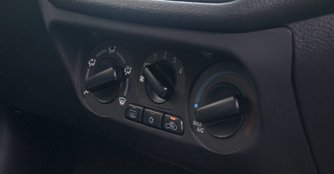
Tests done by different outlets have found results that vary, with some finding huge improvements in fuel consumption when the air-con is turned off, while others experience marginal effects. It can be seen that the potential savings from not using the air-con in your car is affected by many factors.
While turning off the air-con will reduce load on the engine, and in turn reduce fuel consumption, there will also be a considerable amount of drag, which impedes fuel economy if the windows are lowered. Hence, low-speed city driving is where most fuel savings can be found from not using the air-con. Meanwhile, lowering the window for long-distance trips at highway speeds results in increased drag that overrides the savings, causing the car to be less fuel efficient.
However, in Singapore's sweltering heat, we would much rather enjoy the air-con than to suffer the heat for negligible savings.
6) Shifting into neutral when coasting to a stop or down slopes
Most modern cars cut off fuel to the engine when you take your foot off the accelerator with the car in gear because the ECU detects that throttle is fully closed while engine revs are higher than idle, indicating that the car is coasting. Hence, there is no need to shift into neutral while coasting in an attempt to save fuel.
In fact, when you shift to neutral while coasting to a stop or down slopes, despite the engine's lower revs, it will actually be consuming more fuel in order to keep the engine running.
Apart from the lack of fuel savings, it is also dangerous to coast in neutral as you will not be able to accelerate instantly should there be a need to. By coasting down slopes in neutral, there will not be any engine brake, which is hazardous as it will be much more difficult to keep the speed of the car in control.
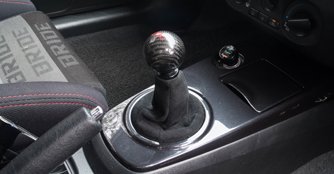
Manual transmissions allow the driver to select the best gear for a given situation. As such, by optimising the shift points, it will be possible to keep the engine running efficiently and result in better fuel economy.
Most automatic gearboxes in the past used to transmit the engine's torque through a fluid coupling (torque converter), which is very inefficient and robs power from the engine. This in turn increases fuel consumption. However, automatic gearbox technology has been rapidly progressing, and mechanisms such as lock-up converters are now incorporated to allow the torque converter to achieve near 100% efficiency.
More gear ratios are also packed into automatic gearboxes so that the engine can be kept in its power band, running efficiently regardless of the vehicle's speed. Automatics nowadays can not only be more fuel efficient; some of them such as dual-clutch gearboxes shift even faster than manuals!
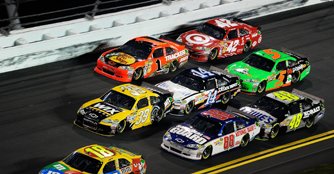
This is one of those that actually work. By tailgating a huge truck on the highway at speed, you can get into the low-pressure zone created behind them, which reduces the drag your car faces. It is a technique often used in racing to gain an edge over the leading car as the reduced drag will allow the following car to go faster.
However, this does not mean that you should be attempting it, as following closely behind a larger vehicle is extremely dangerous. Not only will your vision be blocked by the vehicle that you are following, you will also place yourself right in the blind spot of it. At such a close distance, if there is any sudden braking, you may not be able to slow down in time.
The short distances that we usually drive at relatively slow speed here also mean that drafting will not have much effect, so drafting is rather irrelevant to driving in Singapore.
As most fuel saving tips don’t work, why not cut down on your fuel expenditure? Compare the best petrol discount credit cards and save up to 25% on your petrol bills! Apply now!
Here are some related articles that might interest you
7 ways to reduce running costs
Latest petrol prices in Singapore - Compare prices across all companies here
6 types of car performance modifications to make your car faster on the track
Here's how you can improve your engine's fuel consumption and performance
12 hybrid cars you can buy in Singapore that will save your wallet
Do fuel injector cleaners and octane boosters work?

Sgcarmart
Compare the Best Petrol Credit Cards
Save up to 25% on your petrol bills!
- Maximise your savings at Shell, ESSO, Caltex & SPC petrol stations
- Apply to receive welcome offers and online promotions!
Anyone who drives will love to improve their car's fuel consumption, in a bid to soften the blow on their wallets. As such, many will readily experiment with the various tips found either online or through word of mouth. These tips range from reasonable ones such as not using the air-conditioner, to absolutely bizarre ideas like popping a couple of mothballs into the fuel tank.
So, do any of these tips really work? Let's find out.

1) Fuel-saving gadgets
Fuel-saving gadgets come in many different shapes and sizes. While some claim to reduce your car's fuel consumption by 'conditioning' the electrical system in your car, others apparently do so by breaking up the fuel molecules with products that are attached to the fuel lines.
What they all share is that they often do not have any actual effect on fuel consumption.
You would think that if these technologies really work so well, most car manufacturers and petrol companies would have adopted them ages ago, considering how the race for better engine efficiency has been so heated in the current years.
Many different sources, including the United States Environment Protection Agency, have put a huge array of fuel saving gadgets to the test and concluded that they are never able to achieve their advertised fuel savings.
2) High-octane/Premium fuel improves fuel consumption
Fuels with higher octane rating are able to reduce the possibility of engine knock (an abnormal combustion, which can damage the engine) occurring, as they can withstand more compression before igniting.
Engines are able to produce more power by running an advanced ignition timing (the spark plug ignites the fuel earlier during the engine's cycle). With higher octane fuels, the ignition timing can be advanced further without inducing the aforementioned engine knock and thus results in increased engine performance.
While most performance cars are designed to take advantage of this to make more power and perform more efficiently, using a higher octane fuel in a regular car that doesn't require it, will neither improve its performance nor fuel efficiency.
3) Mothballs in gas tank
This is an age-old automotive myth. It was said that by adding mothballs into your car's fuel tank, it will increase the fuel's octane rating, resulting in better performance and fuel economy.
Mothballs are usually made of naphthalene, which like petrol, are hydrocarbons. This make the claims seem less outlandish. However, many have experimented with them and it was found that mothballs burn very dirtily, which can cause carbon deposits to build up in the engine, affecting performance.
While they might be able to raise the octane level of fuels in the past, if added to modern fuel, which already have high octane ratings (higher than the mothballs), there will not be any benefits.
Furthermore, even if they do increase the octane rating, not all engines are able to benefit from that.


4) Over-inflate tyres to save fuel
While under-inflated tyres are proven to worsen fuel economy, the reverse is not true.
Theoretically, over-inflating tyres will result in a bulge in the centre of the tread, which should reduce the rolling resistance and hence improve fuel economy. However, actual tests have shown that over-inflated tyres result in little to no improvements on the amount of fuel the car consumes.
While the benefits of over-inflating tyres are debatable, there are many definite drawbacks of doing so. An over-inflated tyre will experience uneven tyre wear, will be much stiffer and will have a smaller contact patch, which not only make the ride harsh and uncomfortable, but also affect the car's handling detrimentally.
Furthermore, it will be dangerous if you are to exceed the maximum tyre pressure as stated on the sidewall of your tyres, as that can result in a tyre blowout.

5) Turning off air-con to save fuel
Tests done by different outlets have found results that vary, with some finding huge improvements in fuel consumption when the air-con is turned off, while others experience marginal effects. It can be seen that the potential savings from not using the air-con in your car is affected by many factors.
While turning off the air-con will reduce load on the engine, and in turn reduce fuel consumption, there will also be a considerable amount of drag, which impedes fuel economy if the windows are lowered. Hence, low-speed city driving is where most fuel savings can be found from not using the air-con. Meanwhile, lowering the window for long-distance trips at highway speeds results in increased drag that overrides the savings, causing the car to be less fuel efficient.
However, in Singapore's sweltering heat, we would much rather enjoy the air-con than to suffer the heat for negligible savings.
6) Shifting into neutral when coasting to a stop or down slopes
Most modern cars cut off fuel to the engine when you take your foot off the accelerator with the car in gear because the ECU detects that throttle is fully closed while engine revs are higher than idle, indicating that the car is coasting. Hence, there is no need to shift into neutral while coasting in an attempt to save fuel.
In fact, when you shift to neutral while coasting to a stop or down slopes, despite the engine's lower revs, it will actually be consuming more fuel in order to keep the engine running.
Apart from the lack of fuel savings, it is also dangerous to coast in neutral as you will not be able to accelerate instantly should there be a need to. By coasting down slopes in neutral, there will not be any engine brake, which is hazardous as it will be much more difficult to keep the speed of the car in control.

7) Manual transmissions always give the best fuel economy
Manual transmissions allow the driver to select the best gear for a given situation. As such, by optimising the shift points, it will be possible to keep the engine running efficiently and result in better fuel economy.
Most automatic gearboxes in the past used to transmit the engine's torque through a fluid coupling (torque converter), which is very inefficient and robs power from the engine. This in turn increases fuel consumption. However, automatic gearbox technology has been rapidly progressing, and mechanisms such as lock-up converters are now incorporated to allow the torque converter to achieve near 100% efficiency.
More gear ratios are also packed into automatic gearboxes so that the engine can be kept in its power band, running efficiently regardless of the vehicle's speed. Automatics nowadays can not only be more fuel efficient; some of them such as dual-clutch gearboxes shift even faster than manuals!

8) Drafting behind trucks
This is one of those that actually work. By tailgating a huge truck on the highway at speed, you can get into the low-pressure zone created behind them, which reduces the drag your car faces. It is a technique often used in racing to gain an edge over the leading car as the reduced drag will allow the following car to go faster.
However, this does not mean that you should be attempting it, as following closely behind a larger vehicle is extremely dangerous. Not only will your vision be blocked by the vehicle that you are following, you will also place yourself right in the blind spot of it. At such a close distance, if there is any sudden braking, you may not be able to slow down in time.
The short distances that we usually drive at relatively slow speed here also mean that drafting will not have much effect, so drafting is rather irrelevant to driving in Singapore.
As most fuel saving tips don’t work, why not cut down on your fuel expenditure? Compare the best petrol discount credit cards and save up to 25% on your petrol bills! Apply now!
Here are some related articles that might interest you
7 ways to reduce running costs
Latest petrol prices in Singapore - Compare prices across all companies here
6 types of car performance modifications to make your car faster on the track
Here's how you can improve your engine's fuel consumption and performance
12 hybrid cars you can buy in Singapore that will save your wallet
Do fuel injector cleaners and octane boosters work?

Sgcarmart
Compare the Best Petrol Credit Cards
Save up to 25% on your petrol bills!
- Maximise your savings at Shell, ESSO, Caltex & SPC petrol stations
- Apply to receive welcome offers and online promotions!
